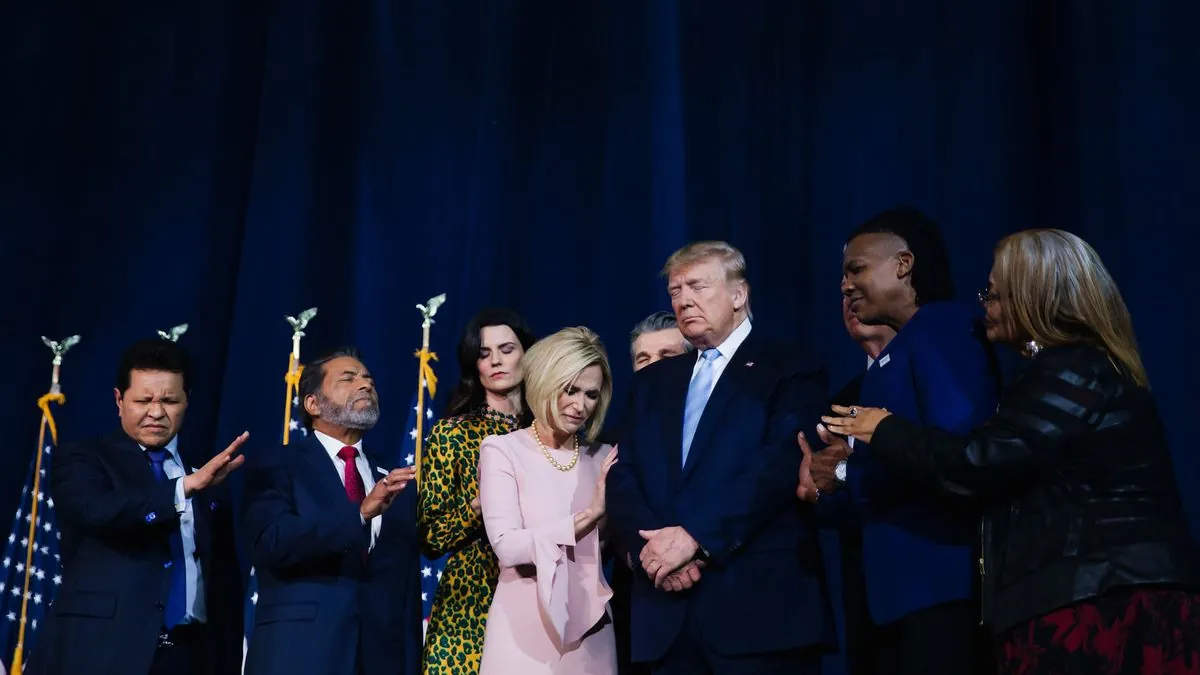In the aftermath of the recent presidential debate on September 10, 2024, Donald Trump swiftly proclaimed victory, a pattern consistent with his previous debate performances. This declaration, however, contrasts with reliable polling data that offers a different perspective on the debate's outcome.
Trump's focus on evangelical voter support became evident in his social media posts following the debate. He highlighted a Pew Research Center poll showing 82% support among White evangelical Protestants, comparing it to previous election results:
- 2016: 77% support
- 2020: 84% support
While Trump touted this as a "phenomenal" number, it actually aligns closely with his 2020 performance, indicating a stable rather than growing base of support.
The significance of evangelical voters to Trump's political success cannot be overstated. In both the 2016 and 2020 elections, they constituted approximately one-third of his total support. However, this religious backing alone has not been sufficient to secure a popular vote victory for Trump.
Interestingly, Trump's Democratic opponents have consistently performed better among non-religious voters. In the 2020 election, these voters made up a similar proportion of Biden's support as evangelicals did for Trump.
Research from PRRI highlights a potential long-term challenge for Trump and the Republican party: the percentage of White Christians, including evangelicals, is declining, while the religiously unaffiliated population is growing. This demographic shift has become a central theme in Trump's political rhetoric.
"The only thing I can think is that God loves our country. And he thinks we're going to bring our country back. He wants to bring it back."
Trump's recent interview with Dr. Phil McGraw revealed his tendency to frame events in religious terms. He suggested that his survival of an assassination attempt in Pennsylvania two months ago was a sign of divine intervention. This incident has been frequently presented in religious terms by his supporters, with some viewing it as evidence of Trump being chosen by God.
Despite not being particularly religious himself, Trump has consistently leveraged the support of religious voters since 2015. He understands that his base is strongly religious and concerned about the status of religion in American society. This symbiotic relationship has been a cornerstone of his political strategy, and he continues to enlist his religious supporters in his defense during times of political need.
As the 2024 election approaches, it remains to be seen how Trump's reliance on religious rhetoric and evangelical support will fare against changing demographic trends and the growing number of religiously unaffiliated voters in the United States.
